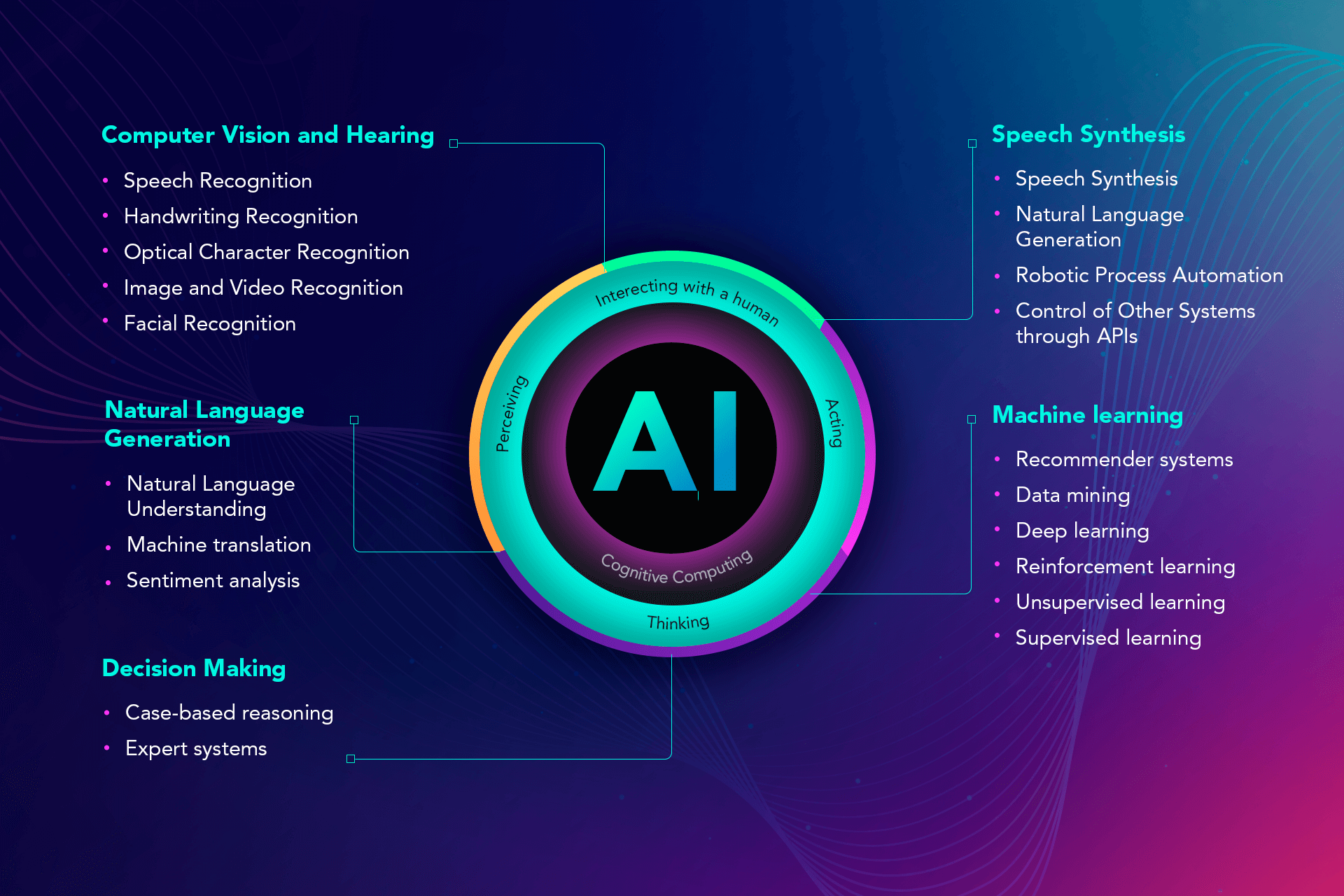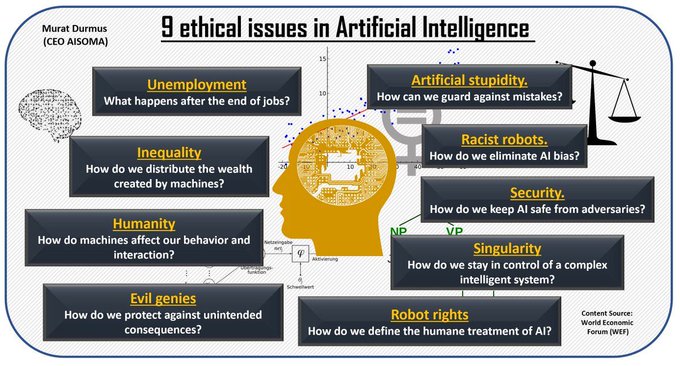
Introduction
Artificial Intelligence (AI) stands at the forefront of technological innovation, reshaping the way we live, work, and interact with the world around us. In this article, we delve into the core concepts of AI, its applications, challenges, and the profound influence it has on our daily lives.
Understanding AI Technologies
Machine Learning
At the heart of AI lies Machine Learning, a revolutionary technology that empowers machines to learn from data and improve their performance over time. It’s the driving force behind many AI applications, from recommendation systems to predictive analytics.
Natural Language Processing
Natural Language Processing (NLP) enables machines to understand, interpret, and generate human-like text. This technology is the backbone of virtual assistants, chatbots, and language translation applications.
Neural Networks
Inspired by the human brain, neural networks are the building blocks of AI. These interconnected nodes process information, allowing AI systems to recognize patterns, make decisions, and enhance their problem-solving abilities.
Real-world Applications of AI
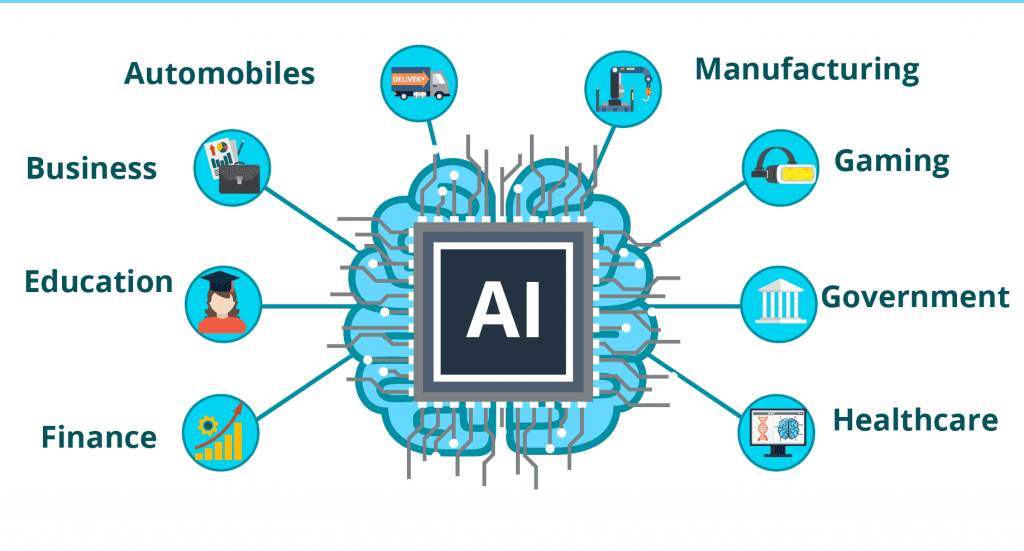 Healthcare
Healthcare
AI has revolutionized healthcare with applications like diagnostic tools, personalized treatment plans, and predictive analytics, improving patient outcomes and accelerating medical research.
Finance
In the financial sector, AI algorithms analyze vast datasets to detect fraudulent activities, predict market trends, and optimize investment strategies, providing a competitive edge and enhancing decision-making processes.
Autonomous Vehicles
AI plays a pivotal role in the development of autonomous vehicles, enabling them to navigate and make decisions based on real-time data, ensuring safer and more efficient transportation.
Impact on Everyday Life
Virtual Assistants
Virtual assistants like Siri and Alexa have become integral parts of our daily routines, showcasing the practical application of AI in providing convenience and efficiency.
Social Media Algorithms
AI-driven algorithms on social media platforms curate personalized content, shaping our online experiences and influencing the content we engage with.
Challenges and Ethical Considerations in AI
Bias in AI
One of the critical challenges in AI is the presence of bias in algorithms, leading to discriminatory outcomes. Addressing this issue is crucial for creating fair and inclusive AI systems.
Job Displacement
The integration of AI in various industries raises concerns about job displacement. Balancing technological advancements with workforce stability is a pressing challenge.
Future Trends in Artificial Intelligence
Explainable AI
The future of AI involves creating systems that are transparent and explainable. Explainable AI ensures that the decision-making process of AI systems is understandable and can be interpreted by humans.
Quantum Computing and AI
The synergy between Quantum Computing and AI holds the promise of exponential growth in computational power, unlocking new possibilities and enhancing the capabilities of AI applications.
The Human Touch in AI
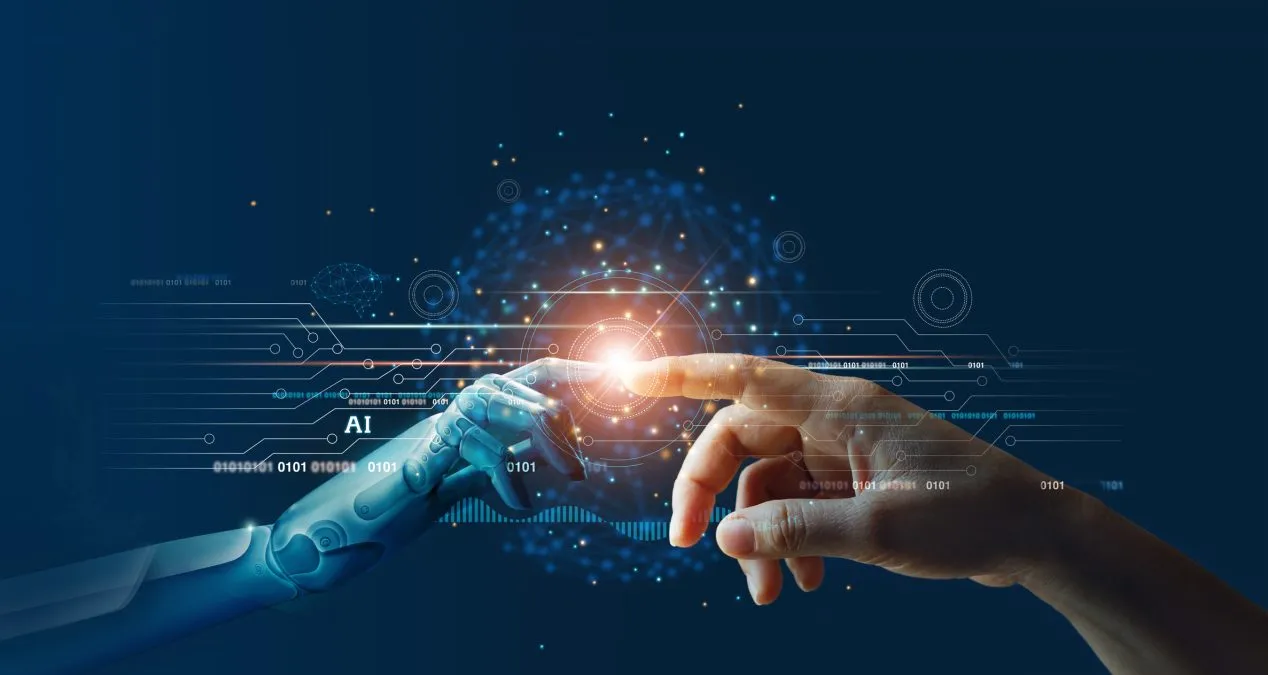 AI and Creativity
AI and Creativity
Contrary to fears of AI replacing human creativity, it has the potential to enhance and collaborate with human creativity, leading to new and innovative outcomes.
Collaborative Potential
AI and human collaboration can result in powerful solutions, where AI augments human capabilities rather than replacing them.
AI in Entertainment and Gaming
AI-generated Content
In the entertainment industry, AI is used to generate content, from music to art, pushing the boundaries of what is creatively possible.
Personalized Gaming Experience
AI in gaming enhances user experience by creating personalized gaming environments, adapting to individual preferences and skills.
AI and Education
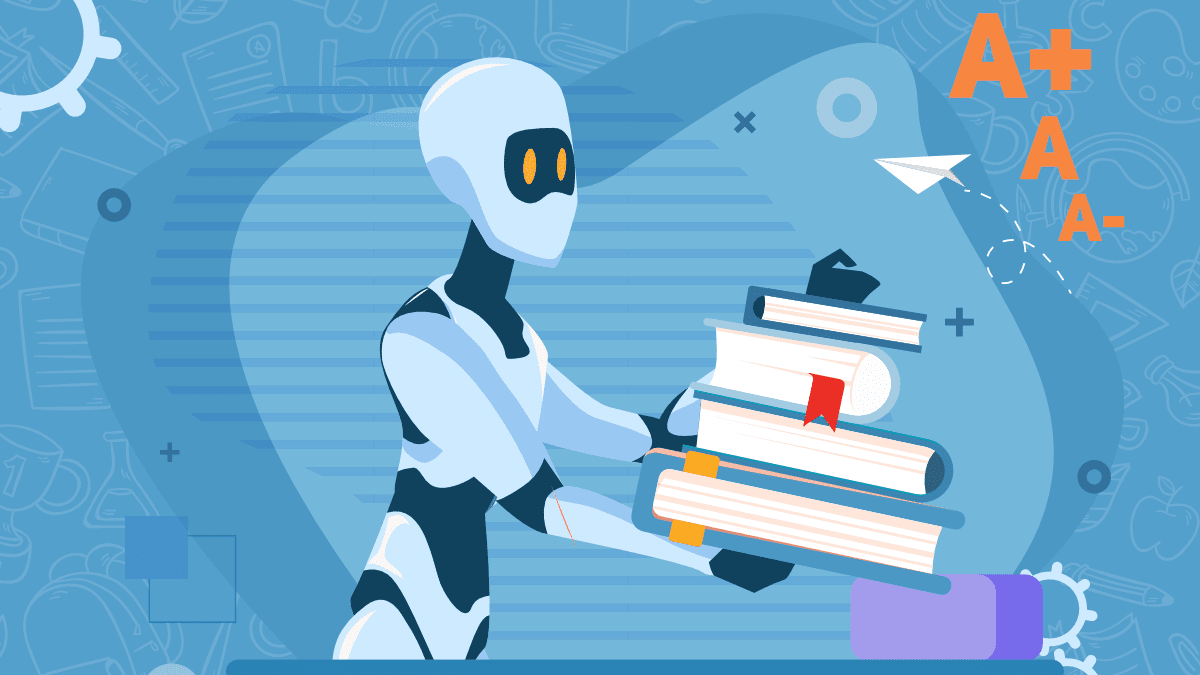 Adaptive Learning
Adaptive Learning
AI in education facilitates adaptive learning platforms, tailoring educational experiences to individual students, addressing their specific needs and learning styles.
Personalized Tutoring
AI-powered tutoring systems provide personalized assistance, adapting to the pace and style of individual learners, fostering a more effective learning environment.
Security Concerns in AI
Cybersecurity Risks
The increased reliance on AI introduces new cybersecurity risks, requiring robust measures to safeguard sensitive data and systems.
Ensuring AI Safety
As AI becomes more integrated into critical systems, ensuring its safety and security is paramount, necessitating stringent protocols and ethical considerations.
AI’s Role in Research and Development
Drug Discovery
AI accelerates drug discovery by analyzing vast datasets, identifying potential candidates, and streamlining the research process.
Scientific Innovation
In research and development, AI contributes to scientific innovation by processing complex data sets, uncovering patterns, and aiding in the discovery of new knowledge.
Global Adoption of AI
AI in Emerging Economies
AI adoption is not limited to developed nations; emerging economies are leveraging AI to address societal challenges, spur economic growth, and enhance quality of life.
International AI Collaborations
Global collaboration in AI research and development fosters innovation, shared knowledge, and the collective advancement of AI technologies.
Environmental Impact of AI
Energy Consumption
The growing use of AI raises concerns about energy consumption. Sustainable AI practices are crucial to mitigate the environmental impact of powering advanced AI systems.
Sustainable AI Practices
Promoting energy-efficient algorithms and responsible AI development practices is essential for minimizing the carbon footprint of AI technologies.
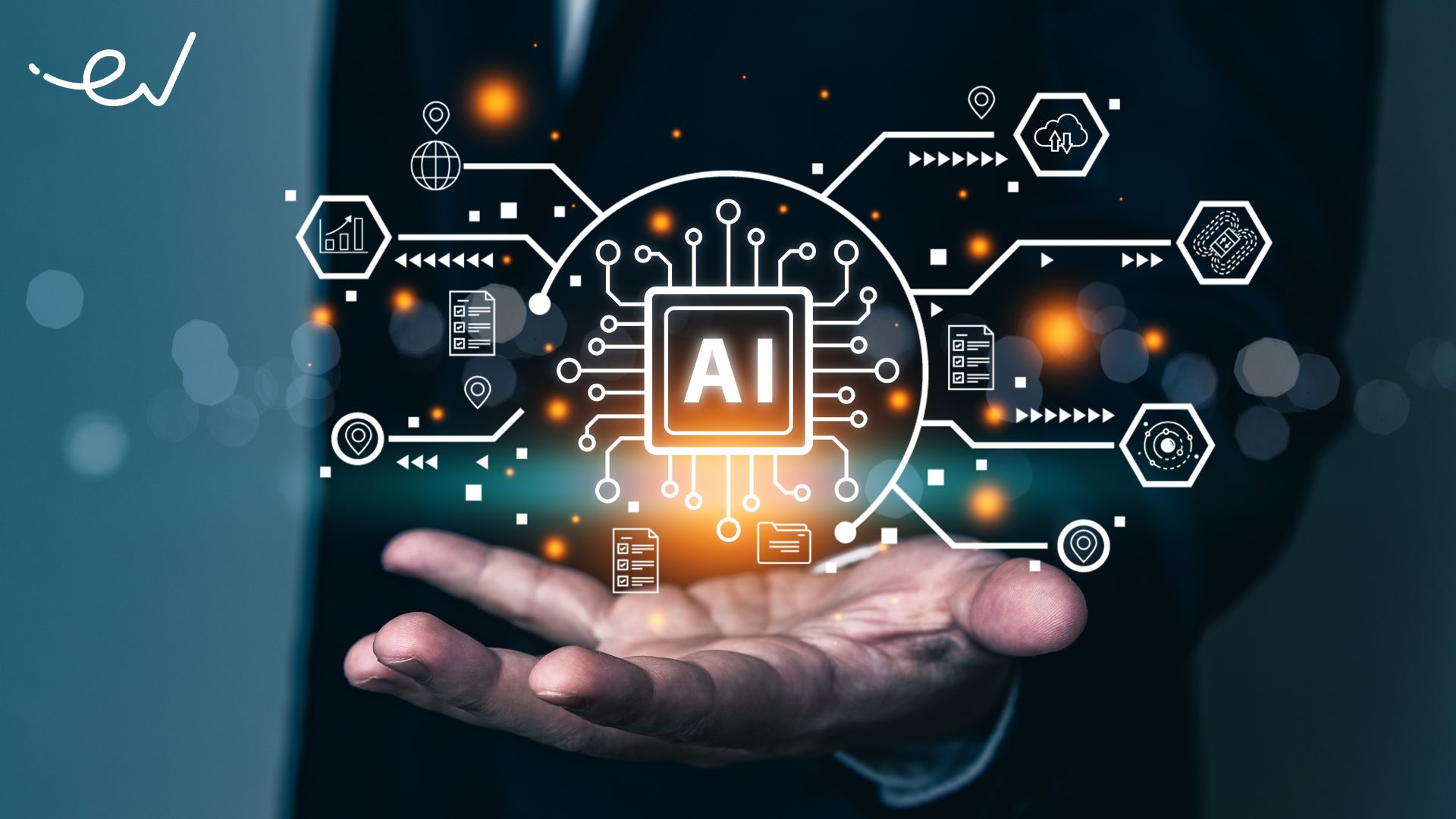 Conclusion
Conclusion
In conclusion, the journey through the landscape of Artificial Intelligence reveals its far-reaching impact on diverse sectors of our society. From healthcare and finance to education and entertainment, AI has become an integral part of our daily lives. As we navigate the complexities and challenges, it’s imperative to approach the future of AI with a balance between innovation, ethical considerations, and collaboration between humans and machines.
FAQs
-
What is the future of artificial intelligence?
- The future of AI holds endless possibilities, with ongoing advancements in technology and its integration into various industries.


